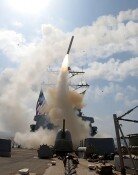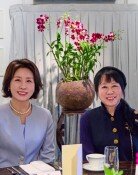[Focus] Perceptions differ on reciprocity
[Focus] Perceptions differ on reciprocity
Posted January. 30, 2001 11:40,
The gap is widening instead of closing. The Seoul government had better not use the term "sunshine policy." Because it implies that the Seoul government stakes its fate on relations with North Korea its, failure could prove devastating. Government officials here expressed concern over the yawning gap between South Korea and the United States in their perceptions of North Korea policy, as the remarks to this effect allegedly made by Richard Armitage, the deputy secretary nominee at the U.S. State Department, were made known in Korea on Monday. The official reaction by the Seoul government is rather subdued because Armitage is still a nominee yet to take office and the utterance made by a nominee, as a private citizen has been somewhat misrepresented. But the fact that the government took pains to issue an official comment to settle the dust indicated the seriousness with which Seoul officials took the statements. A deep gap between Seoul and Washington in the conception of reciprocity in dealing with North Korea might stoke discord between the two countries and divide domestic public opinion. They are concerned over the lurking danger.
Differing views on reciprocity:
Seoul interprets reciprocity applicable to Pyongyang as a functional approach of resolving the current issues in a practicable way one by one. It is akin to the theory of priming the pump. The National Security Conference on Jan. 7, 1999, put forward a loose version of reciprocity toward North Korea. "The principle of reciprocity ought to be upheld, but its application should be flexible, not forcing simultaneous, symmetrical and equivalent condition upon the other side," it said. When controversy developed over the repatriation of long-term North Korean prisoners to the North following the inter-Korea summit, the South observed that Pyongyang gave Seoul much more, citing the former's revised stand on its old demand for removing U.S. forces from Korea and its participation in the talks of the defense ministers of the two Koreas. On the contrary, Armitage and Republican leaders in Washington are of the opinion that the Seoul government received from Pyongyang only "empty words and no substantial action." South Korea argues that it is not obsessed with superfluous and competitive measure-for-measure deals. The American side sees Seoul is at the beck and call of Pyongyang.
U.S. change on reciprocity:
On June 19 last year President Bill Clinton lifted part of the economic sanctions on North Korea in accordance with a bilateral agreement reached in Rome in May. Two days later, on June 21, North Korea responded favorably by promising suspension of missile tests again. Diplomatic and defense analysts believe such a thing hardly could happen under the Bush administration. It is because the Republican interpretation of reciprocity is not to give anything to North Korea before getting something, they say. Government sources here say that Seoul and Washington cannot and need not pursue an identical North Korea policy. However, they expressed misgivings about the adverse impact of a negative U.S. policy toward North Korea upon Seoul's North Korea policy, as long as Washington exercises a decisive influence to bring North Korea into the fold of international society.
Boo Hyung-Kwon bookum90@donga.com







